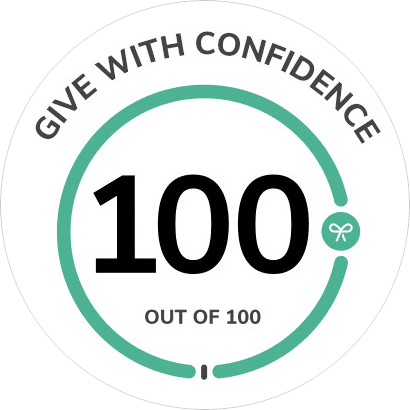The following post was written by United Planet volunteer Clarke Hung who is currently working in Bolivia.
“What’s the biggest animal in the world?” asked Mr. Roly. “The whale or the elephant?”
“The monkey!” shouted a little indigenous student.
“It’s the whale,” smiled Mr. Roly amidst the ingenuous laughter of her classmates. “And where do whales live?”
“In the water!” cried the entire class. “Correct. Whales are the biggest creatures in the water. So what’s the biggest animal on land?”
“The monkey!” shouted the same little girl.
“It’s the elephant,” smiled Mr. Roly between another wave of laughter from the class.
“And where do elephants live?” “In the Yungas!” (a region in Bolivia where elephants definitely don’t exist—not even en zoos.)
This is what classes are like in “Jesús de Machaca,” a small town located in the plateaus near the border between Bolivia and Peru. The villagers here are “aymara,” the same race as the current Bolivian president Evo Morales. It’s a pretty isolated town, with hardly 600 inhabitants under the rule of the local authorities. The daily routines here embody the typical lifestyle of the Bolivian country-dweller, characterized by the lack of internet, transportation, supply of water and electricity, and variety of diet (normally consisting of nothing but potatoes, potatoes, and more potatoes). In addition, many students must make a daily trek of two hours in order to arrive at their closest schools. For those of you who don’t know much about the Bolivian education system, the students down here only go to school for four hours per day. This means that many of them spend as much time getting to their classes as learning in them. It doesn’t surprise me that many parents simply choose to utilize their children as additional hands in farming and cattle raising instead of sending them to school.
The Bolivian education system has never been known for its quality, especially in the countryside. I once taught an English class that couldn’t understand “My name is Clarke, what is your name?” after six full years of previous English classes… Thanks to my great Polish friend Alexandra, I had the amazing opportunity to start working in this tiny village yesterday. I’d been volunteering for two and a half months as in La Paz (the capital of Bolivia) and El Alto (the capital’s neighboring city of chaos), and although I’d been working In projects with great people, these projects simply weren’t fulfilling my aspirations. The project coordinators only gave me trivial work that could be completed by anybody who cared to take the time and do it, making me feel like I was completely wasting my time while I could be contributing so much more with my talents. I decided to embark on my gap year because I wanted to widen my knowledge of our vast world and forge a more complete worldview through volunteering in places that desperately needed help… and I didn’t need much time to reach the conclusion that La Paz wasn’t one of those places. The city was already full of foreign volunteers, and while some of them were certainly doing great work with street children, La Paz really didn’t harbor that many homeless people — especially for a city its size.
After nearly three months of working in La Paz, I just couldn’t stand the feeling of uselessness within me. The simple truth was that I wasn’t doing anything to make a positive impact on the societal situation. All that I was doing was losing motivation and becoming a lazy bastard. In short, I wasn’t taking advantage of my amazing gap year opportunity to experience and help out our vast world. This situation simply had to change. So one day an idea suddenly appeared in my head: “Why don’t I start working with Alexandra in her project in Jesús de Machaca? I remember hearing that new volunteers were always welcome.” I didn’t need to think about it much — immediately I knew that it was the solution that would save me from my utter lack of inspiration. I don’t know how I knew; I just remember that I felt the same certainty as I did when the brilliant idea of deferring my college entrance entered my head.
 I decided to follow my intuition back then, and as a result I’ve experienced some of the best moments of my life throughout my fascinating travels. Obviously, I had to follow this same intuitive feeling one more time. I’ve only worked in Jesús de Machaca for two days, so it’s still too early to reach conclusions about my change of working environment. However, what’s certain is that I’ll definitely get the chance to live a truly “Bolivian” experience during my stay here in this tiny village, watching videos about whales and elephants alongside little indigenous kids who’ve only seen a world with llamas, cows, and sheep…
I decided to follow my intuition back then, and as a result I’ve experienced some of the best moments of my life throughout my fascinating travels. Obviously, I had to follow this same intuitive feeling one more time. I’ve only worked in Jesús de Machaca for two days, so it’s still too early to reach conclusions about my change of working environment. However, what’s certain is that I’ll definitely get the chance to live a truly “Bolivian” experience during my stay here in this tiny village, watching videos about whales and elephants alongside little indigenous kids who’ve only seen a world with llamas, cows, and sheep…
Intrigued? Read more about Clarke’s experiences on his blog or plan your own gap year in Bolivia!
ABOUT UNITED PLANET
United Planet is a non-profit organization with a mission to create a global community, one relationship at a time. Established in 2001, United Planet offers volunteer abroad, virtual internships, internships abroad, gap year volunteering, and global virtual exchange in more than 40 countries.





